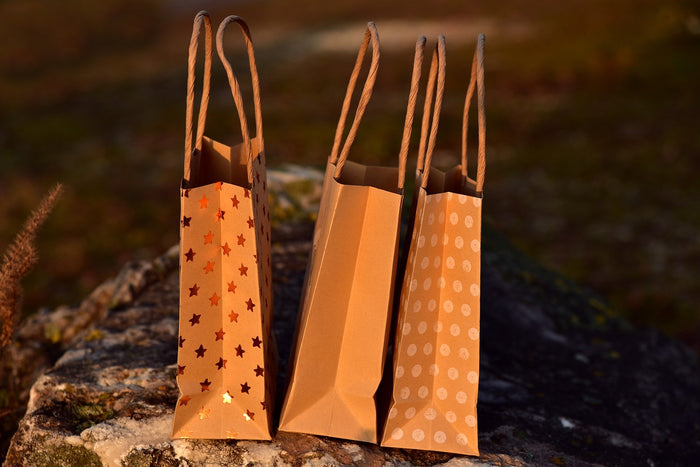We all have items we hold dear—whether they’re valuable for financial, sentimental, or practical reasons. These valuables can range from jewelry and electronics to important documents, heirlooms, or even digital assets. Protecting these belongings is crucial, especially as unexpected events like theft, accidents, or natural disasters can quickly put them at risk.
In this guide, we’ll explore the best strategies for safeguarding your valuables, from organizing and storing physical items to protecting digital assets. Following these tips can help you preserve your prized possessions and give you the peace of mind that comes with knowing they’re secure.
Identify and Organize Your Valuables
Before you can protect your valuables, you need a clear understanding of what they are and where they’re kept. This step will make it easier to develop a strategy to keep them safe.
Create an Inventory List
Make a list of your most important belongings. Include descriptions, serial numbers, purchase receipts, and photos. For items like jewelry, antiques, or art, get a professional appraisal to determine their current value. This inventory can be invaluable if you ever need to file an insurance claim.
Organize Documents and Receipts
Group related documents, such as property deeds, vehicle titles, and insurance papers. You can store these in a single secure folder or in digital form. Having everything organized will make it easier to access the information quickly if needed.
Use a Safe for High-Value Items
A reliable safe is a simple but effective solution for securing valuable items in your home. Whether you need to protect jewelry, cash, important documents, or family heirlooms, a safe can provide an additional layer of security.
Choosing the Right Safe
When selecting a safe, look for features such as fire and water resistance, tamper-proof construction, and adequate size for your needs. Consider installing it in a hidden or discreet area to minimize the chances of it being targeted by thieves.
Fireproof and Waterproof Options
For documents and irreplaceable items, a fireproof and waterproof safe is essential. In the event of a fire or flood, these safes are designed to withstand extreme conditions, protecting your valuables from damage.
Using a Safe Deposit Box
For items that are especially valuable or irreplaceable, consider renting a safe deposit box at a bank. This off-site option offers an added level of security, keeping your items safe from both natural disasters and potential home break-ins.
Invest in Home Security Systems
A home security system is an effective deterrent against theft and can significantly reduce the likelihood of a break-in. Modern systems come with a range of options, from basic alarm systems to advanced smart security setups.
Alarm Systems and Cameras
Install alarms on doors and windows and consider adding security cameras around the exterior of your home. Many systems allow for remote access through your smartphone, letting you monitor your home even when you’re not there.
Smart Locks and Motion Detectors
Smart locks and motion detectors can be a valuable addition to your home security. With smart locks, you can grant temporary access to trusted individuals, track who enters, and lock or unlock doors remotely. Motion detectors alert you to unexpected movements, enhancing security in areas where your valuables are stored.
Benefits of Professional Monitoring
Some security companies offer professional monitoring, which alerts authorities in case of a break-in or emergency. This service can be particularly helpful if you travel often or are away from home for extended periods.
Protect Digital Valuables
In today’s digital world, protecting digital assets is just as important as safeguarding physical belongings. These assets might include sensitive documents, passwords, and financial records, all of which require secure storage and management.
Use Strong, Unique Passwords
Start by creating strong, unique passwords for online accounts, especially those related to banking, personal data, or valuable digital content. Use a password manager to store these passwords securely, and avoid using the same password across multiple accounts.
Enable Two-Factor Authentication
Two-factor authentication (2FA) adds an extra layer of security by requiring a second form of identification, like a phone code, in addition to your password. This can help prevent unauthorized access even if someone manages to obtain your password.
Back Up Important Files
Regularly back up important digital files to a secure location, such as an external hard drive or a cloud storage service. For sensitive information, consider encrypting your files before backing them up, adding an extra layer of protection in case of cyber threats.
Invest in Cybersecurity Software
Install and update reliable cybersecurity software to protect your devices from malware, viruses, and phishing attacks. This software can monitor your system for suspicious activity and alert you to potential threats before they become an issue.
Insure High-Value Items
Homeowners and renters insurance can provide financial protection for your valuables. However, some policies have coverage limits on high-value items, so you may need to add additional coverage, known as a rider or floater, for particularly valuable possessions.
Understand Your Policy’s Coverage
Review your insurance policy to understand what is covered and any limitations. Typical policies may not fully cover items like fine art, jewelry, or electronics, so consider purchasing additional insurance if needed.
Keep Your Inventory Up to Date
Regularly update your inventory list as you acquire or sell valuables. Keeping your records up to date can make the claims process much smoother if you ever need to report a loss.
Document Any Claims
If you experience a loss, document everything in detail for your insurance company. Include photos, receipts, and a description of the events. Timely documentation can help expedite the claims process and ensure you receive appropriate compensation.
Store Valuables in Safe Locations When Traveling
If you’re going to be away from home, take extra steps to protect your valuables. Either store them in your home safe or, if they’re especially valuable, a bank safe deposit box.
Avoid Leaving Valuables Out in the Open
Don’t leave expensive items in plain sight when you’re away, as this can make your home a target. Instead, store them in a safe or secure cabinet, preferably in a discreet location.
Consider Travel Insurance
When taking valuables with you on a trip, look into travel insurance that covers loss or damage. Many travel insurance plans cover items like electronics, jewelry, and personal belongings, providing additional peace of mind while you’re away.
Regularly Review and Update Security Measures
Safeguarding your valuables isn’t a one-time task. Regularly reviewing and updating your security measures ensures that they continue to provide effective protection.
Stay Informed on New Security Options
As technology advances, new security solutions become available. Regularly assess whether your current security measures are up to date and consider upgrading to improve your protection.
Conduct Routine Safety Checks
Check your home’s security features periodically. Test alarms, inspect locks, and ensure that safes are functioning properly. Address any weak points in your security setup, especially if you’ve recently acquired new valuables.
Maintain Secure Habits
Finally, develop secure habits for day-to-day activities. For instance, always lock doors and windows, use complex passwords, and avoid sharing sensitive information. Consistently practicing these habits can prevent avoidable security issues and keep your valuables safer.
Conclusion
Protecting your valuables, whether they’re physical possessions or digital assets, is crucial for maintaining peace of mind. By identifying what’s most important, choosing secure storage options, investing in home security, insuring high-value items, and regularly updating your security measures, you can protect your prized belongings from harm.
While no security plan is completely foolproof, following these tips will greatly reduce the risk of theft, damage, and loss. A proactive approach to safeguarding your valuables allows you to enjoy them without worry, knowing they’re well-protected against life’s unexpected events.




